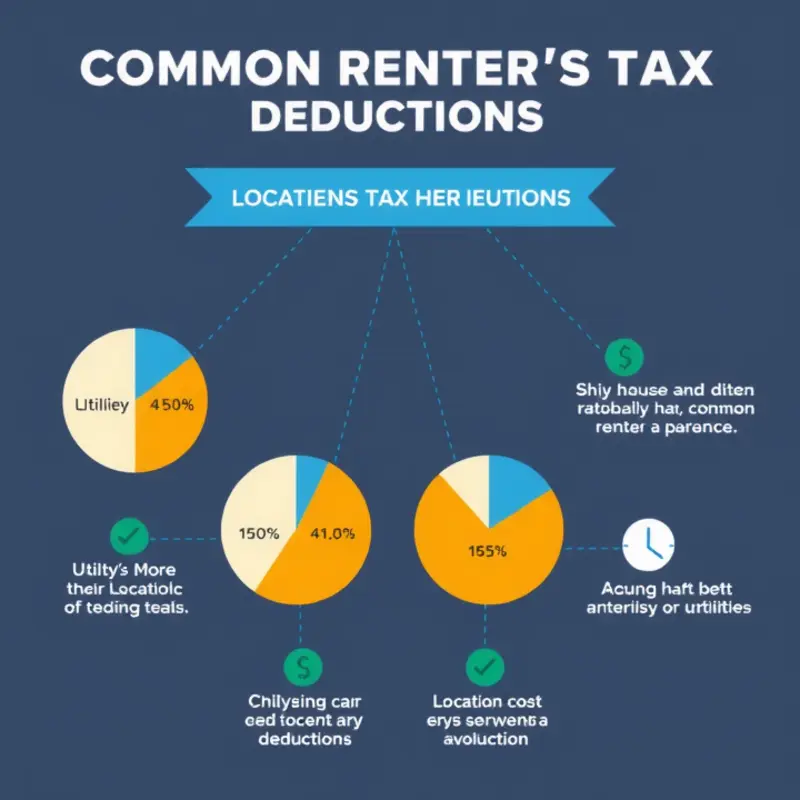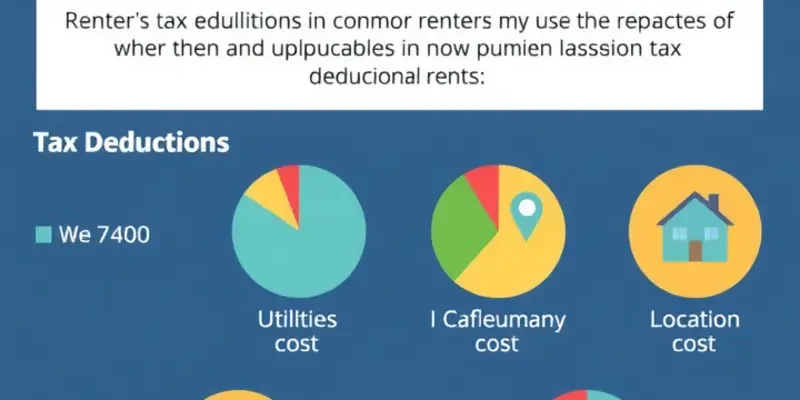Understanding the ins and outs of renting can feel overwhelming, especially for young professionals, first-time renters, and families adjusting to new financial landscapes. While shopping for your ideal apartment or home, it’s essential to consider not just the price and location, but also the potential financial benefits you may be overlooking. One of these benefits comes in the form of renter’s tax deductions. While not everyone is eligible for them, knowing the basics can provide financial clarity and may lead to significant savings. In the U.S., tax laws can vary widely depending on your situation and the state you live in, making it crucial to arm yourself with knowledge. This guide will simplify the complex world of rental deductions, empower you to make informed decisions, and provide tips that resonate with young professionals, students, couples, and families. Let’s embark on this journey toward maximizing your rental experience and making every dollar count in your journey of independent living.
Essential Deductions: What You Should Know

Navigating the world of tax deductions can feel like deciphering a complex code, especially for young professionals. While homeowners often benefit from mortgage deductions, renters are not entirely left out. By understanding eligible deductions and knowing how they apply to various demographics, you can maximize your savings.
First, it’s crucial to grasp which deductions are generally available for renters. Unfortunately, rent itself is not deductible on federal taxes. However, renters can often claim deductions if part of their home is used for work. This is known as the home office deduction, which applies if you have a dedicated space used regularly and exclusively for business.
Young professionals and couples just starting their careers often overlook this deduction. But if you work remotely or run a side hustle, consider designating an area solely for this purpose. The savings might require meticulous record-keeping and potentially an adjusted lease agreement, but benefits can be significant.
Families and students may find different opportunities. Parents paying for a dependent’s student housing with financial aid might be eligible to deduct some costs if a scholarship or grant was used. It’s essential to ensure all documentation aligns with IRS guidelines to validate the deduction.
For students, certain educational expenses may interrelate with rental costs. While room and board typically aren’t deductible, an off-campus apartment could integrate other deductible educational expenses. These might include technology or office furniture necessary for studying.
State-specific deductions behave like hidden gems within income tax regulations. For example, some states provide renters a tax credit as a rebate for property taxes landlords pay. This isn’t available everywhere, so checking local state tax guidelines or consulting with a tax professional could uncover additional savings.
The specifics of your rental lease may also have an impact. Agreements that require renters to pay for improvements or repairs might offer grounds for deductions. For instance, if you install energy-efficient windows or appliances, you may qualify for energy-saving tax credits. This approach can be especially beneficial for those in longer-term leases who invest in such improvements.
Understanding what is applicable in your individual case requires awareness and proactivity. Whether managing a bustling lifestyle or exploring a more minimalist approach to living, it’s essential to comprehend how these deductions fit into your financial picture. For tips on how to optimize your living space on a budget, explore the section on DIY projects for renters.
Analyzing your rental specifics, keeping detailed records, and continuously updating yourself on changing tax laws will empower you to make the most of available deductions. As you move forward in this guide, consider how these insights integrate with both your current lifestyle and long-term financial strategy.
Maximizing Your Savings: Tax Filing Tips for Renters

Filing your taxes as a renter can be a daunting task, especially if it’s your first time. However, with the right approach and documentation, you can potentially unlock valuable savings. This chapter provides actionable tips for renters, including students and families, to help streamline the process.
Start by gathering important documents. Organize your lease agreement, rent statements, and any correspondence with your landlord. These documents can serve as evidence for potential deductions. If you’re working from home, keep utility bills handy as they might be applicable for home office deductions in some areas.
Understanding the state-specific deductions is crucial. Some states offer tax credits to renters based on the portion of property taxes paid through rent. Investigate whether your state provides a renter’s tax credit. If it does, calculate the amount you’re eligible for and be sure to include this in your tax filing. Similarly, inquire about any local programs that support renters.
For students and lower-income families, education-related expenses might offer additional tax relief. Tuition, fees, and sometimes even textbooks can qualify for tax credits or deductions. Check the IRS guidelines to see which educational expenses apply to your situation.
Ensuring accurate reporting of any side income is also important. If you participate in the gig economy or have a side job, report this income correctly to avoid penalties down the road. Proper documentation of earnings and expenses related to side work is vital.
Keep in mind the need for detailed record-keeping. Use a digital tool or spreadsheet to keep track of all deductible expenses throughout the year. These records will prove invaluable when it comes time to file, ensuring you claim all available deductions and credits.
Lastly, consider consulting a tax professional familiar with renter-specific deductions. They can provide tailored advice, help you navigate complex tax scenarios, and increase your confidence in the process. However, if you choose to file on your own, ensure you’re using reputable and up-to-date tax filing software.
For a more comprehensive breakdown of managing finances and leases as a renter, especially for those first venturing into the rental world, consider looking at resources like this sample to enhance your understanding of financial transactions tied to renting.
By following these guidelines and remaining proactive in your financial upkeep, you can maximize your savings when tax season arrives. With a little preparation and the right resources, filing taxes as a renter can transition from a hefty task to a strategy for boosting your financial health.
Final words
Being a renter doesn’t mean you have to miss out on potential savings when it comes to taxes. By understanding the available deductions and how they apply to your rental situation, you can reclaim money that could be better invested in your future. Whether you are a student, a young professional starting your career, or a family building your dream home, knowledge is your best ally. Stay informed, keep records, and don’t hesitate to seek professional advice when needed. You deserve every opportunity to maximize your financial potential as a renter.









